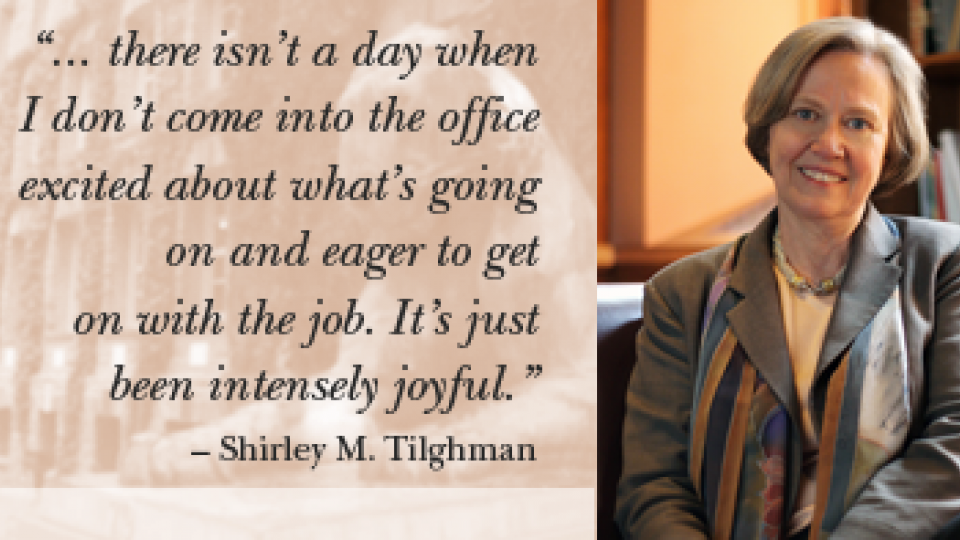Of the many accomplishments that have prepared Maria Klawe for her new role as engineering dean, one that does not appear on her resume is her success in learning to juggle.
It's a skill she began developing in 1979 as a graduate student at the University of Toronto. Despite self-described klutziness -- "like the nerd who does no sports" -- she was entranced when she saw an impromptu performance by a professor visiting from MIT. Taking her on as a challenge, the professor worked with Klawe for about two hours a day through his one-week stay.
"By the end of that week I was at the point where a normal person would be in five minutes," said Klawe. "But it was enough. I just worked on it for months and years, and here I am -- 25 years later and I can juggle," said Klawe, who now performs a brief show with four balls to demonstrate the importance of taking on new challenges.
At Princeton, Klawe has set herself another kind of challenge -- propelling the School of Engineering and Applied Science to the highest ranks in the country and integrating the school more closely into the rest of the University. According to those who have worked with her, Klawe is just the person to do it.
"She has enormous energy, and she's not one to be easily daunted," said James Sturm, a professor of electrical engineering who served as interim dean. Colleagues said that whether keeping four balls in the air or pulling diverse faculty members together to achieve things they never thought possible, Klawe approaches everything in life with a powerful enthusiasm, tenacity and refusal to conform to molds.
"Just hang on to your hat; things are going to happen," said Sturm. "She has lots of ideas and you never quite know where the great success is going to be, but (the engineering school) is going to be a very different place in five years than it is today."
As she prepares for change, however, Klawe has set a measured pace. Since starting in January, she has spent much of her time meeting with people from inside the engineering school, from around the University and from industry and other universities to learn about the school and how it fits into the broader context of engineering and education. These interviews are leading up to a major strategic planning initiative that will hit full stride this fall when the school will hold a series of 10 one-day retreats. The retreats will range in subject from undergraduate and graduate education to faculty research and industry interaction and could ultimately involve nearly 1,000 people, Klawe said.
"The really key thing we have to do over the next 12 months is decide what our areas of excellence are, what we are going to focus on," said Klawe, a computer scientist who came to Princeton from the University of British Columbia, where she was dean of science. "They have to be a set of areas where we can really become the best in the world."
The full story is available in the Weekly Bulletin.
Contact: Evelyn Tu (609) 258-3601
